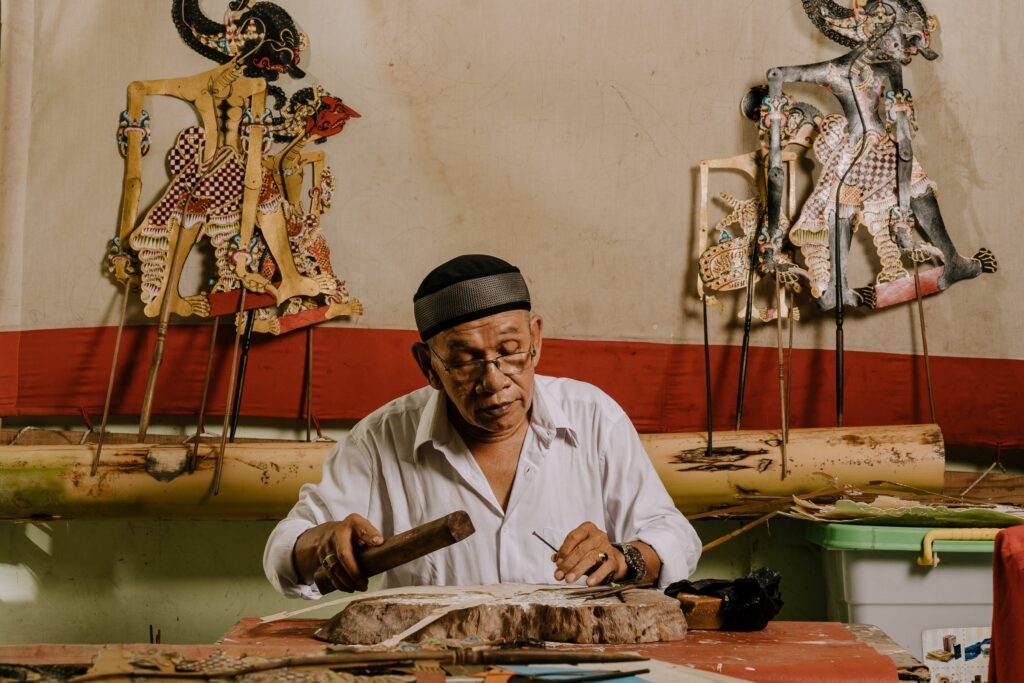With its rich cultural tapestry, Indonesia is a country that never ceases to amaze. Its diverse landscape, breathtaking natural beauty, and vibrant traditions make it a fascinating destination for travelers and culture enthusiasts. Suppose you’ve ever considered delving into Indonesian culture. In that case, one of the most rewarding ways is learning the language while immersing yourself in its unique traditions. In this blog post, we’ll explore the incredible world of Indonesian traditions, discuss how to understand the Indonesian language, and emphasize the rewarding experience of combining both endeavors.
The Beauty of Indonesian Traditions
Indonesian traditions are as diverse as the archipelago’s landscape. With over 17,000 islands, each with its customs and rituals, Indonesia offers many cultural experiences for those willing to explore. Here are some of the most intriguing traditions you can discover:
Batik Artistry
Batik is a traditional Indonesian textile art form that uses wax and dye to create intricate patterns on fabric. This ancient practice has been recognized as a UNESCO Intangible Cultural Heritage and is an integral part of Indonesian culture. Learning about batik can deepen your appreciation for the craftsmanship and symbolism behind these beautifully designed fabrics.
Wayang Kulit Puppetry
Wayang Kulit, or shadow puppetry, is a traditional Javanese art form that combines storytelling, music, and intricate puppetry. It often features characters from ancient epics like the Ramayana and Mahabharata. Watching a Wayang Kulit performance is like stepping into a mystical world; understanding the stories behind the shadows adds depth to the experience.
Jamu Herbal Medicine
Jamu is a traditional herbal medicine practice in Indonesia. It involves using natural ingredients like roots, leaves, and spices to create remedies for various ailments. Learning about Jamu offers insight into traditional healthcare and highlights Indonesia’s rich biodiversity.
Rice Terraces and Subak Irrigation
In Bali, the Subak system of rice terraces and irrigation has been practiced for over a thousand years. This sustainable agricultural system ensures a steady rice supply and reflects the harmonious relationship between humans and nature. Exploring the Subak system reveals rice cultivation’s cultural and environmental significance in Indonesia.
How to Learn Indonesian
Now that we’ve explored some of Indonesia’s unique traditions, let’s turn our attention to learning the Indonesian language. Understanding the language is essential for a deeper connection with the culture and its people. Here are some effective ways to learn Indonesian:
Take Language Classes
Enroll in Indonesian language classes, either in-person or online. Many language schools and online platforms offer comprehensive courses to help you master the basics and progress to more advanced levels.
Use Language Learning Apps
Language learning apps like Duolingo, Babbel, and Rosetta Stone offer Indonesian courses that allow you to practice vocabulary, grammar, and pronunciation at your own pace.
Practice with Native Speakers
Engage in conversation with native Indonesian speakers. Language exchange partners or conversation groups can provide valuable speaking practice and cultural insights.
Immerse Yourself in Indonesian Media
Watch Indonesian movies and TV shows, and listen to music or podcasts in the Indonesian language. This exposure will help you become more familiar with the language’s rhythm and intonation.
Travel to Indonesia
Nothing beats immersing yourself in the culture and language by visiting Indonesia. While there, try to communicate with locals in their native tongue, and you’ll find that people are often eager to help you learn.
Learning Unique Indonesian Traditions While Learning the Language
Now, let’s bring these two aspects together. Learning Indonesian while immersing yourself in its unique traditions is a match made in cultural heaven. Here’s why:
- Enhanced Cultural Understanding: Learning the language allows you to delve deeper into Indonesian traditions’ cultural nuances and meanings. You can appreciate the significance of rituals, symbols, and customs on a whole new level.
- Connecting with Locals: Speaking Indonesian makes it easier to communicate with locals and engage in meaningful conversations about their traditions. It’s a fantastic way to foster friendships and gain insider knowledge.
- Experiential Learning: Being in Indonesia and participating in cultural events or activities, you’ll have hands-on, experiential learning beyond textbooks and classrooms.
- Personal Growth: The combination of language and cultural immersion is intellectually stimulating and personally enriching. It broadens your horizons, boosts your adaptability, and increases global awareness.
In conclusion, learning about Indonesian traditions and the Indonesian language is a rewarding journey that promises a deeper appreciation for this culturally diverse nation. By immersing yourself in the customs and simultaneously mastering the language, you’ll unlock a world of rich experiences and connections with the people of Indonesia. So, whether you’re a traveler, an expatriate, or simply a culture enthusiast, embrace the opportunity to explore the unique traditions of Indonesia while embarking on your language-learning adventure. Your cultural horizons will expand, and the beauty of Indonesian traditions will forever enrich your heart.


